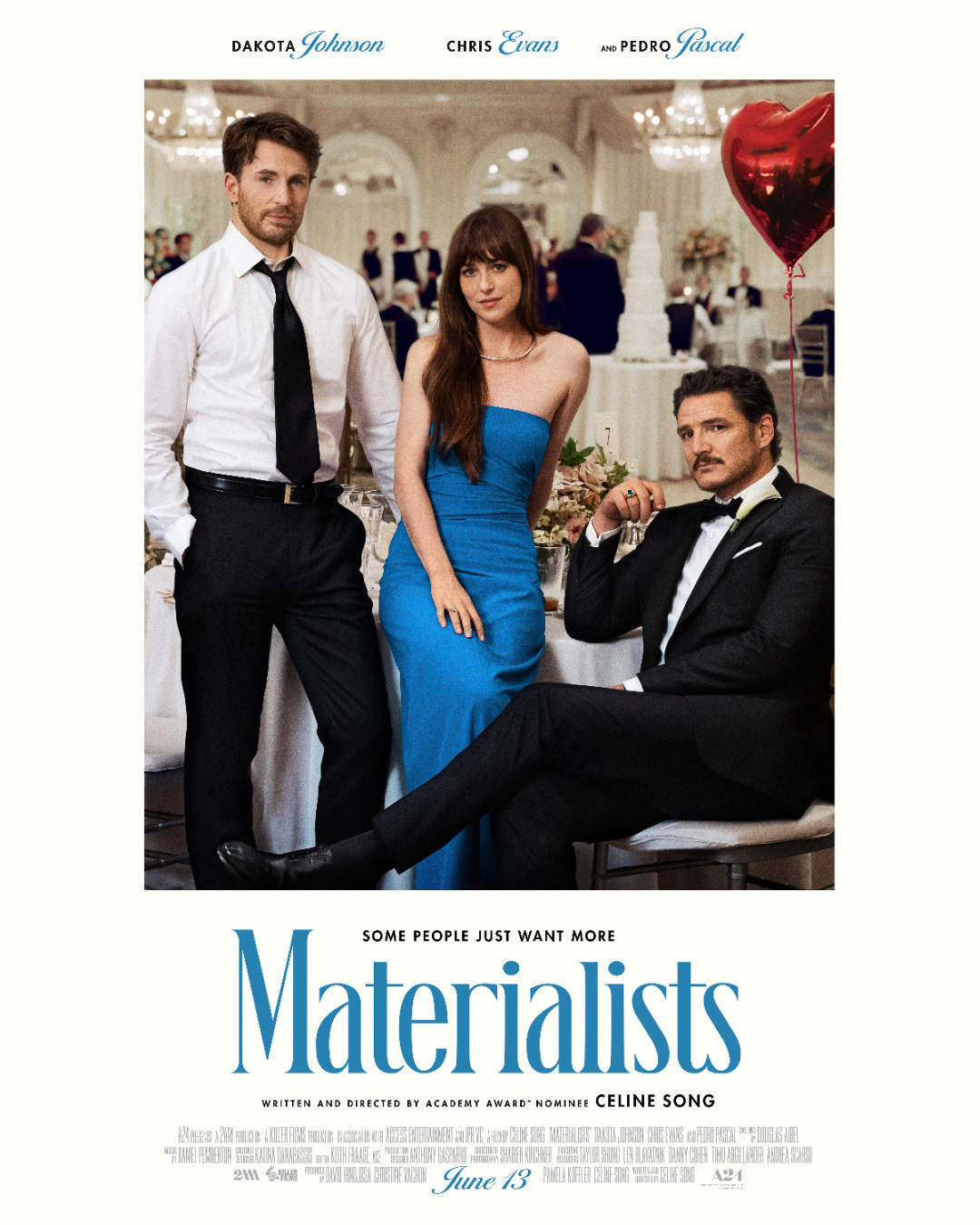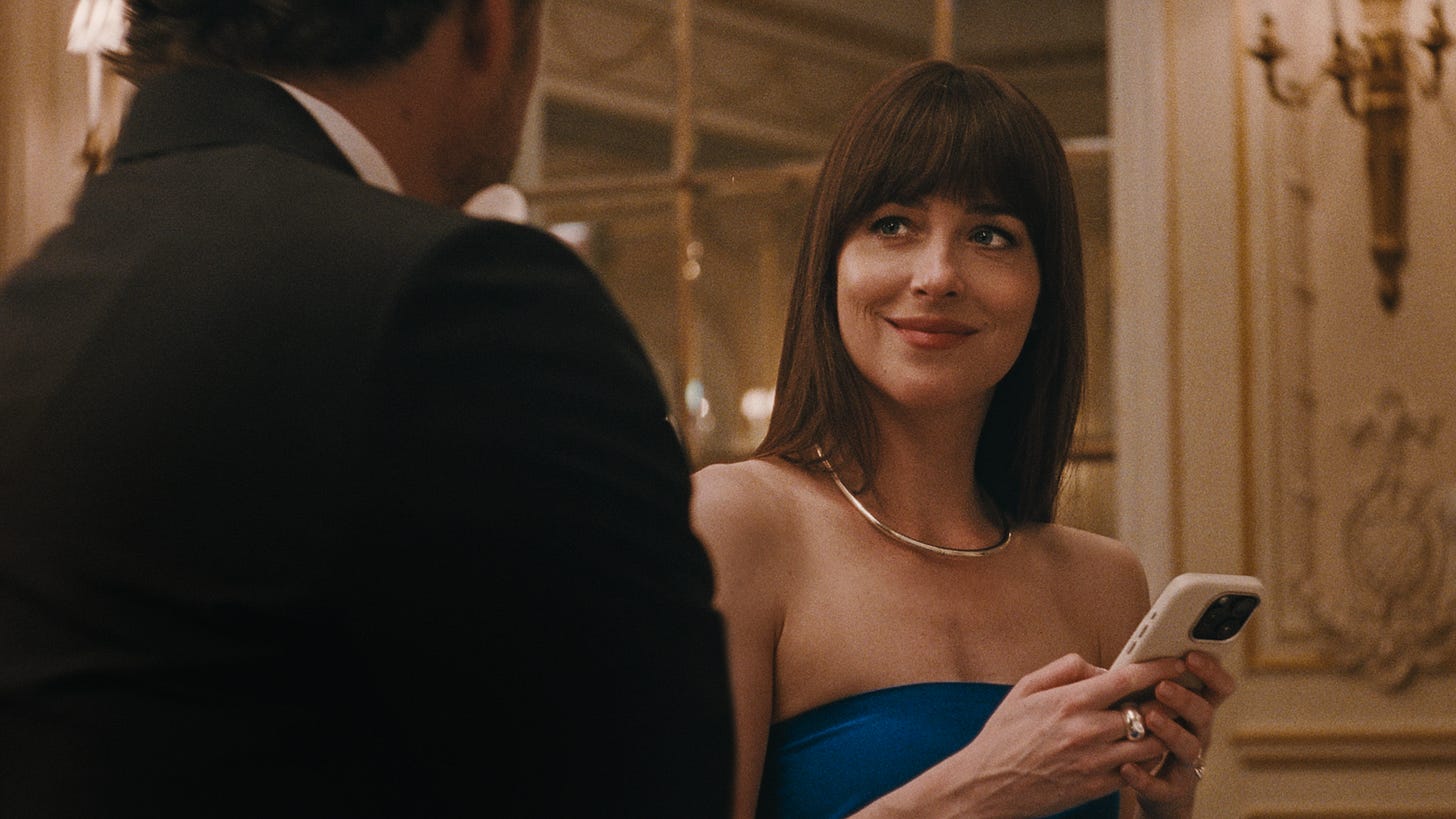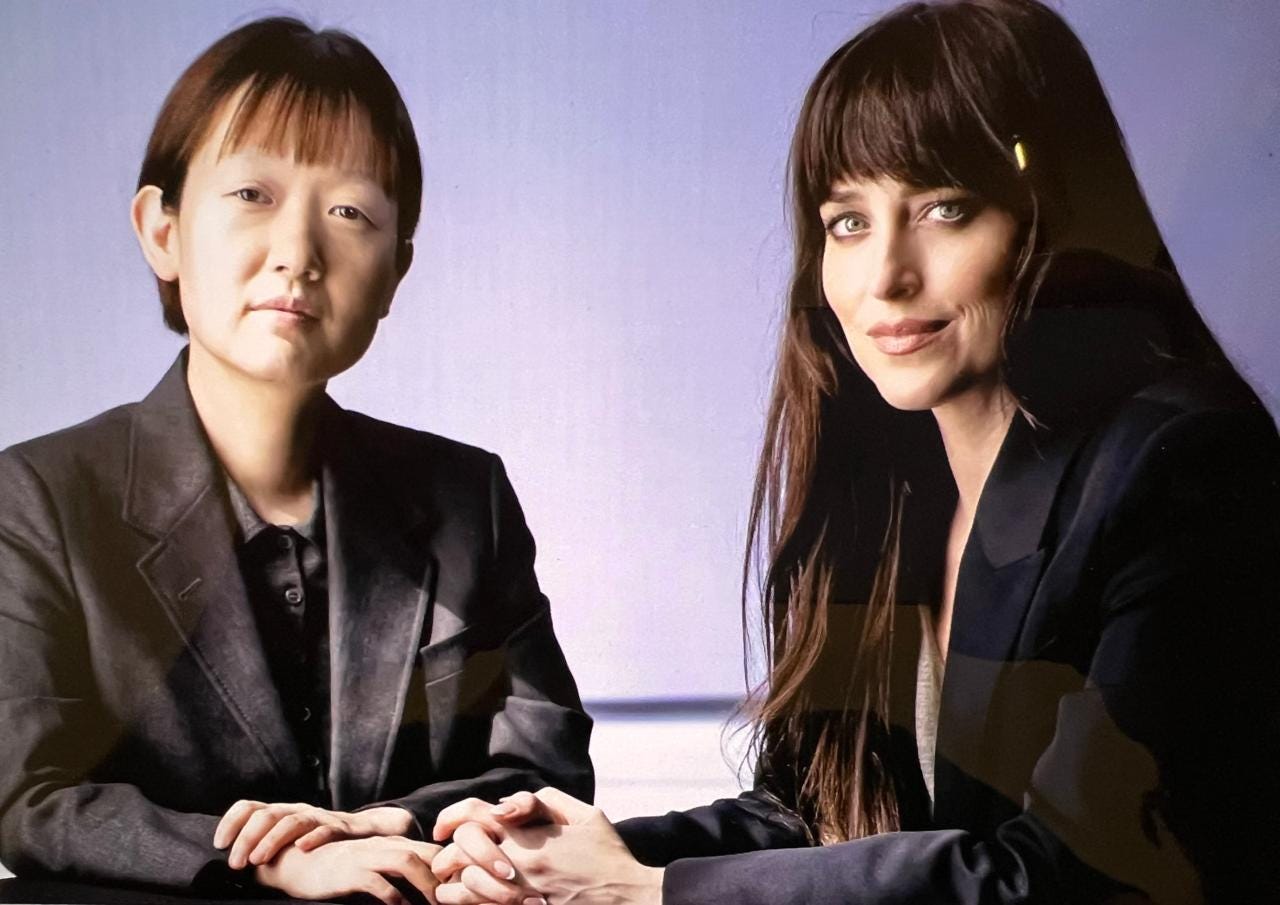Materialists
a wistful song of discovered love
Director Celine Song grounds her characters continuously to the level of their foibles, with self awareness and consciousness, such that suddenly, we, watching with our hearts in our mouths, find ourselves in a strange transcendental state, of realization - and the discomfort which follows.
Even as Lucy (a shimmering Dakota Johnson), traverses the city alone, and calls herself a 'self-acknowledged celibate', she makes matches the way an accountant makes his balance sheet, ticking boxes, juggling numbers (heights! earnings! age!), reinforcing hope ('I believe in you'). Nine of her matches have culminated in marriages, a rarity, a celebration, and for her a triumph, in finding life partners for those, who had often given up hope of ever finding one. She knows which boxes to tick to get the hunting man to meet his searching girl. Her Maths of Dating was Perfect.
Till it no longer is.
A client's date goes horribly wrong, and, worse, she allows a crazily rich person, handsome to boot, the perfect potential client, who just doesn't tick a single box which would include her, to fall for her.
In a city as fluid and wanting as New York (hell, like every city where there are people!) the demands of living far outweigh loving. In its hurly burly insistences, everything needs its logos - logic, rationale, measure. Everything needs to have an ROI - time, engagement, love. As Lucy keeps saying "Marriage is a financial transaction." Maybe. Maybe, that's what it looks like when everything is considered to be measurable and measured.
Because then our motives for seeking marriage become simple. Comfort, irrespective of lack of compatibility. Companionship, so we are not lonely. Hopeful, instead of feeling valued.
The tragedy of measuring everything is that when you yourself don't measure up to your exalted standards, you start collapsing inside yourself. You hate yourself, and think everyone who knows also hates you. Every thought is a feigning, because that's what lack does - it stops looking at things as they truly are.
It requires either a crisis or a clear soul to finally recognize that that one element, which is most critical in building a relationship, has to be on the table - love: the indeterminate thing never considered on a balance sheet. But Harry (a soft, rugged Pedro Pascal) - rich, entitled, alone - says that's the most difficult thing - because he can't ever see it happening to him. Lucy comforts him by saying it will be easy when it comes. Because love is a presence which will find him, rather than the other way around.
She scarcely believes what she says.
Till she learns something - you know love's presence when you pass through a crisis, and immediately think of that one person - though you might have just fought with him or thought you hated. It could be your matchmaker, or it could be your ex. But when the residual feeling inside you - irrespective of a breakup, irrespective of a fight, irrespective of a misunderstanding - refuses to go, then there is something which is burning brighter than logic.
And that's when you reach out, and do mad things, and finally know love's calling. And it manifests in the form of a John (a dishy Chris Evans) plaintively saying "When I see your face, I see wrinkles and children that look like you."
For too long, romance is dismissed on the altar of convenience (and rom-coms are dismissed as chick flicks, or 'girl shit' (as Lucy sarcastically retorts to John when he is dismissive of her job)). But at some point something infinitesimal and uninvited starts chipping away at the inherent cynicism inside us, and becomes a compass, turning us away from the thought that people get married only "because they're lonely and because they're hopeful".
That's when we realize our hearts are capable of finding their place of ease and fit. Even as our lives are still governed by numbers and tangibles.
Materialists moves from the aching longing of Past Lives, to find the unpredictability and certainty of love. But it does that through the bruising terrain of cynicism and the wistful confusion of being blinded to the obvious. Till you are not.
See Materialists twice. But after seeing Past Lives yet again.
Read my essay on the gorgeous Past Lives.
The film:
A young, ambitious New York City matchmaker finds herself torn between the perfect match and her imperfect ex.
Materialists seeks thoughtful resolutions to love's separations, whereas Past Lives talked of distances which are desperate to be covered. Whereas the latter is one of missed chances, the former is of almost-missed ones. Both movies are beautiful-looking, immaculately-acted, and inextricable from the cities they are based in. Both films leave you wistful and thoughtful, musing on your own misses, near-misses and settlements. Nothing in life is ever perfect - thank god some movies are.
I write, so you can enjoy and expand your world. Would you like to support me? Well, here’s what you can do -
share this post -
subscribe if you still haven’t -
tell me of your thoughts -




